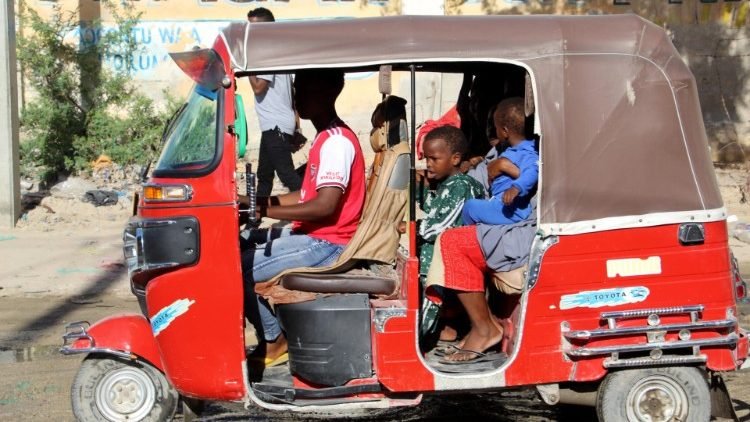In Somalia’s complex context, a very small Christian community continues to live notwithstanding the various difficulties and challenges.
Agenzia Fides – Mogadishu, Somalia
For thirty years Somalia has been a divided country, without stable institutions, crossed by fundamentalist turmoil. In this complex context, a very small Christian community continues to live which, amidst a thousand difficulties, continues to move forward with its faith. It is led by Bishop Giorgio Bertin, a life dedicated to Somalia first as a Franciscan missionary, then as Bishop of Djibouti and Apostolic Administrator of Mogadishu.
Somaliland
The Bishop is well aware of both the conditions in which Christians live and the political and economic situation of the country of the Horn of Africa. The Somali Catholic community is very small: in the entire country there are just a few dozen who secretly profess Christianity. Nevertheless, among members of international organizations and military contingents present in the territory, the number of Christians is slightly greater. Just think of the Italian, Burundian and Kenyan contingents.
In Somaliland, a state declared independent, but not recognised by the international community, there is a more stable presence. There is a priest with a sizeable community of the Catholic faithful. However, these are forced to profess their faith at home or indoors.
Christians have gradually been marginalised
Somalis have always professed a tolerant Islam. They have always been open to dialogue and have never had tense relations with Christians. “Somalis have never been anti-Christian,” says Bishop Bertin, “indeed, in the past they viewed us in a benevolent way. Since the fall of Major General Siad Barre (President of the Somali Democratic Republic from 1969 to 1991), perhaps even a little earlier, with the arrival of an Islamism that seeks to rebuild society on the basis of Islamic law, Christians have gradually been marginalised. Currently politicians, although not hostile to the Church, tend not to guarantee a space for Christians because they fear being accused of favouring ‘the crusaders’. These are rhetorical formulas that, unfortunately, however, are becoming fashionable,” explains Bishop Bertini.
Catholics present through Caritas Naxariis (mercy)
Catholics are present on the territory through Caritas Somalia, which works at a social level providing humanitarian assistance to the population in difficulty, especially vulnerable groups such as children and women. When Cyclone Gati, the strongest tropical cyclone on record to make landfall in Somalia, devastated the country in 2020, Caritas worked in Puntland, the northwestern region of the country, assisting 3,500 people. It was not an easy intervention because it was carried out in an area where the presence of jihadists is strong.
In Somaliland, Caritas Somalia, takes the name Caritas Naxariis (Mercy), and works on an educational project for 35 displaced children.
Somali politics: Interests of regional and international actors.
With the arrival of the covid-19 pandemic, Caritas Somalia also began working in Mogadishu, Garowe and Bosaso with educational programs to prevent the spread of the virus. Operating in Somalia is not easy. The political situation is very complex. “To simplify,” observes the prelate, “we have before us a central power, which is trying to resurface and assert itself, but is at the same time facing federal states which, in turn, are trying to make their voice heard. In fact, this confrontation has immobilized the country. The Somali political situation is influenced by the interests of regional and international actors. The price of this situation is the instability paid by the civilian population.”
Al Shabaab sowing hatred and terror
In this political complexity, it is necessary to deal with a very strong Islamic fundamentalism: “Al-Shabaab, concludes Bishop Bertin, is present in the interior of south-central Somalia, but it also has cells in the main Somali cities. Besides Al Shabaab, there are groups inspired by the Islamic State, especially in Puntland. Both, in addition to imposing a comprehensive vision of Islam, sow hatred and terror in the territory. Thirty years after the fall of the Siad Barre regime, the context is still very difficult. Institutions are weak, sometimes absent, and often quarrelsome. The country needs a programme to build a State capable of providing its citizens with security and basic services. Paradoxically, in areas controlled by al-Shabaab and militia linked to al-Qaeda, this security and these services exist – all under a regime of terror that limits any form of freedom,” said Bishop Bertini.



